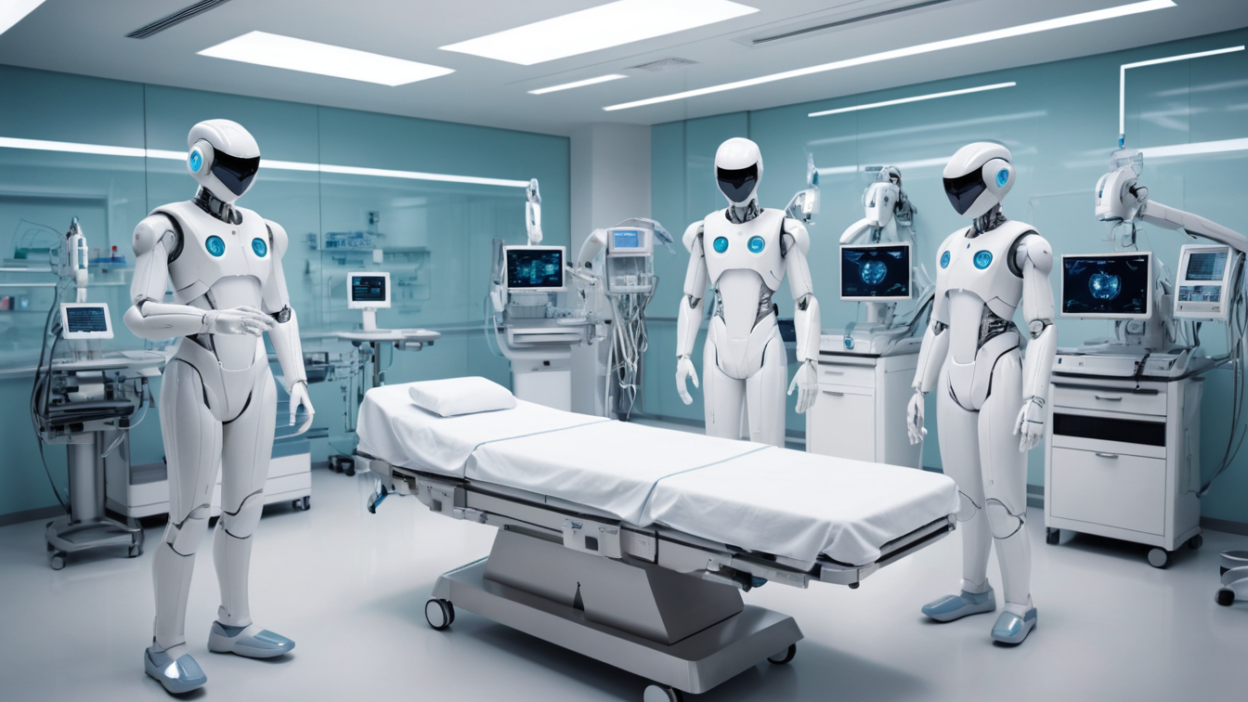Pioneering a new era of AI-powered medical care
A Hospital Where No One’s Human, And That’s the Point
Imagine walking into a hospital where every doctor, nurse, and even patient is powered by artificial intelligence. Sounds like science fiction? It’s fast becoming reality in China, where a groundbreaking virtual healthcare system is set to launch publicly by mid-2025.
Developed by a team of AI researchers, this virtual hospital mimics the full cycle of real world medical care, from a sniffle or symptom all the way through diagnosis, treatment, and recovery. But here’s the twist: every character involved is a virtual agent, generated by a large language model (LLM). These AI avatars are designed to act just like us, making decisions, asking questions, and learning over time.
Yes, you read that right. Welcome to the world’s first self evolving, fully autonomous digital healthcare ecosystem.
Meet MedAgent-Zero: The Brain Behind the Bots
At the core of this ambitious system is MedAgent-Zero, the secret sauce that allows AI doctors to do more than just “pretend” to be smart. This methodology enables the AI to learn and evolve through:
- Simulated patient interactions
- Medical literature reviews
- Lessons from both correct and incorrect past cases
And the results? Nothing short of impressive:
- 95.6% diagnostic accuracy
- 88% accuracy on medical exams
- 77.6% in treatment outcomes
- 93% score on a respiratory-focused USMLE test segment
In other words, these AI doctors are not just fast, they’re really good.
Speed Meets Scale: AI That Never Sleeps
Humans can only handle so many patients a day. But AI? It can see tens of thousands of cases in mere days. That’s the kind of scalability that could revolutionize rural healthcare, emergency response, and even global health education.
The current virtual hospital hosts 42 AI physicians across 21 departments, including emergency medicine, cardiology, and pulmonology. But this is just the beginning. Future upgrades are already in the works, including:
- Simulating evolving disease patterns
- Incorporating historical patient data
- Developing career paths for AI clinicians (yes, promotions too!)
The Pharmacist’s New Frontier
It’s not just the doctors getting a digital makeover. Pharmacists are expected to play a huge role in this AI-powered future. As the experts in medication safety and effectiveness, they’ll be vital in:
- Verifying AI-generated treatment recommendations
- Flagging drug interactions
- Customizing therapies based on virtual patient profiles
- Helping program and refine medication decision algorithms
Think of pharmacists as the human conscience of this AI-driven machine, making sure that what looks good in theory holds up in practice.
A Growing Trend in China and Beyond
This initiative is part of a broader movement in China, where institutions are investing heavily in LLM-powered clinical tools. Among them:
- MedGo: Created at Tongji University, trained on thousands of medical textbooks
- CARES Copilot: A diagnostic AI chatbot based on Meta’s Llama 2
China isn’t just dabbling in digital medicine, it’s going all in. And the rest of the world is watching.
So, What’s Next?
As AI systems continue to mature and LLMs evolve (they’re currently running on ChatGPT-3.5 and 4, with upgrades on the way), we may soon see virtual hospitals that are smarter, faster, and more globally relevant than any traditional system.
One thing’s for sure: healthcare will never be the same again. And maybe that’s a good thing.





